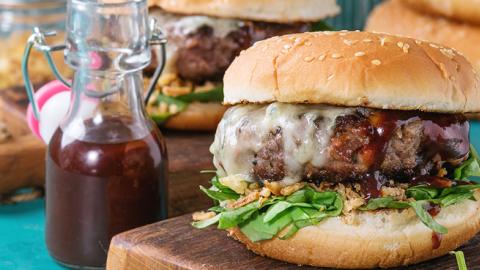For fans of HBO’s Game of Thrones, perhaps the biggest thrill of Season 8 is seeing fiercely rival families and religions join forces to finally defeat the White Walkers, a zombie army that grows by killing off the living. No less collaboration will be needed to fight one of our greatest public health crises today: obesity, which is putting 93 million US adults at increased risk of premature death
In short, we need every sector of the food and beverage industry – from packaged food and restaurant companies to beverage makers and convenience store operators – to join the fight. And we especially need the biggest companies in those sectors to engage seriously, because they can make the biggest impact.
Unfortunately, two big players – the restaurant and baked goods sectors – remain missing in action, apparently too focused on their own ambitions. Meanwhile, in a very satisfying plot twist, the convenience store industry has emerged as the obesity wars’ Jaime Lannister: the rogue character who shows more and more moments of profound nobility and emerges an unlikely hero.
Over the nearly 100 years since the first convenience store opened in Dallas, this channel has gained a reputation as purveyors of unhealthy products – for example, cigarettes, supersized sodas, beer and fatty snack foods. But to demonstrate that industry’s voluntary turnaround, earlier this month its trade group, the National Association of Convenience Stores (NACS), was named Partner of the Year by the obesity-fighting non-profit organization Partnership for a Healthier America (PHA) which hosts one of the largest public health-food industry convenings at its annual Summit. I have had the privilege of moderating panels of food industry executives “telling all” since the Summit’s inception in 2011.
NACS represents the interests of more than 154,000 convenience stores in the U.S. NACS has fast-tracked programs to help its members sell healthier foods and beverages, going so far as to enlist Sesame Street characters to promote fruit and vegetable sales. Big convenience store chains such as Sheetz, Cumberland Farms, Kwik Trip and Maverik are making their product lineups healthier, affordable and available year-round.
The impact has been substantial. The U.S. convenience store sector now sells a quarter of a billion dollars of fruit annually and water sales have topped $4 billion. This is a noteworthy development, one that a decade ago I would have said would never transpire given the importance of less healthy product sales to the convenience store industry.
The PHA Summit also honored a small but noble newcomer: the baby food company Sprout Foods, Inc., which aims to train young palates to crave vegetables and eat less sugar. Sprout committed to no added sugar in the baby food pouches it sells and make vegetables the leading ingredient in more than half of those pouches. Like Game of Thrones’ well-intentioned Jon Snow, Sprout is an example of a company built from the ground up with healthy food motives and few bad deeds to atone for; we need more companies like it to lead the way for their categories.
But we also need more companies like McDonald’s, the National Confectioners Association and (gasp!) the top soft drink companies to demonstrate that it’s possible; all have made solid commitments to make ingredients healthier, remove sugar and calories or sell smaller portions.
Why is the restaurant industry as a whole still missing in action? Restaurants and food service operators account for more than 30% of all the calories sold in the US. They are the most egregious purveyors of salt, sugar and fat. Why does the average fast-food meal have 90 more calories today than it did in 1986, with portion sizes up 24% since then? In contrast, a Hudson Institute study has shown that 63% of restaurant patrons want healthier options and that 55% would prefer smaller portions. The typical calorie-laden restaurant meal is not what most consumers want.
Nor have the nation’s largest baking companies done much to trim calories. The same Hudson Institute study showed that sweet baked goods such as packaged pastries, donuts, cookies and salty snacks are overconsumed by the consumer segment with the highest body mass indexes (BMIs). Still, no big bakers have stepped up with meaningful public pledges to make nutritional improvements to their products or cut portion sizes.
So how can the restaurant and baked goods sectors play a more heroic role in the obesity wars? A few suggestions:
Show leadership – Big companies have the power to influence others that respect their competitors’ market intelligence and fear losing their edge. For example, after McDonald’s switched to using cage-free eggs in its breakfast items in 2015, 200 other companies switched over to cage-free eggs.
Make specific commitments – The companies and industries that have partnered with PHA have agreed to specific, measurable initiatives to make their products healthier. We need similar commitments, especially from restaurant chains that have sat on the sidelines. There are no more excuses. Convenience stores face many of the same operational problems as restaurants do. And yet, the convenience store industry has chosen to sell more better-for-you items because they are growing categories and many of their customers now want them.
Practice “stealth health” – Restaurants in particular should be reducing calories gradually and imperceptibly, especially from their higher-calorie menu items, which often have enough calories for an entire day. A 10% reduction in a 1,600-calorie chicken alfredo or an 1,850-calorie burrito won’t drive customers away; in fact, it won’t even be noticed.
As both Game of Thrones and the obesity wars show, even flawed characters are capable of doing great deeds. Just as the fantasy world needed former villains and warring families to unite against the White Walkers, the non-fantasy world needs all food industry sectors to be all in for the fight against obesity. We are rooting for those sectors that already have transcended past misdeeds and made commitments to a higher cause. We’re still waiting breathlessly for the rest of them.















